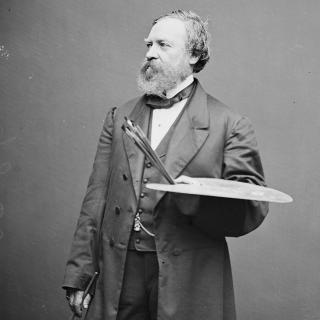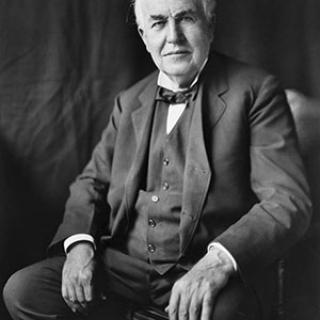Impressions of Washington: By the Light of the White House being Engulfed in Flames
Washington, D.C. has had many visitors since it’s inception, but it cannot be said that everyone was a huge fan. Actually, in 1814, there were quite a number of people who were a bit upset with the Capitol. You might have heard of them... The British?
Yes, on August 24, 1814, the British attacked and burned Washington, D.C., causing the government seat to be displaced for a while. One of the Britons apparently found enough time whilst attacking the city at night in the middle of a hurricane to take in the sights and form some opinions.
Here’s what George Robert Gleig, a soldier under General Robert Ross, had to say about the city:
[I]t possesses no leading features, by catching which I might hope to convey to a person who has not seen it, something like an accurate notion of the whole. It was then, and is, I believe, still in its infancy, few of the streets being finished, and many containing not more than three or four houses, at wide intervals from each other. But its situation gives to it advantages such as few capitals either in the new or old world can boast of, and if it continue to be the head of the American States for another century, it will become, I doubt not, one of the most flourishing cities in existence. America is, and always will be, a commercial nation, nor can a single town throughout the whole of that vast continent boast of a better harbour than Washington. Standing upon the Potomac, one of the most navigable of all the rivers that empty themselves into the Chesapeake, the depth of which is sufficient to float a frigate for some way above the town, it possesses unrivalled facilities for the carrying on of an extensive trade; whilst its distance from the coast is such as to place it, in a great measure, beyond reach of insult from an enemy. [Excepting that the Americans completely messed up and here we are.]
Like other infant towns, Washington is but little ornamented with fine buildings; except the Senate-house, I really know of none worthy to be noticed. This however is, or rather was, an edifice of some beauty. It stood, where its ruins now stand, upon a mound called the Capitol Hill, and near a trifling stream named the Tiber; from which circumstances these modern republicans are led to flatter themselves that the days are coming when it will rival in power and grandeur the Senate-house of ancient Rome herself. It was built entirely of freestone, tastefully worked and highly polished; and, besides its numerous windows, was lighted from the top by a large and handsome cupola. Perhaps it could not be said to belong to any decided style of architecture; but its central appearance was light, airy, and elegant. …
The President's house, on the other hand, though likewise a public building, was remarkable for nothing except the absence of taste exhibited in its structure. It was small, incommodious, and plain; in no respect likely to excite the jealousy of a people peculiarly averse to all pomp or parade, even in their chief magistrate.
Besides these, there were also a custom-house, several banking-houses, and a school or college, all claiming to themselves the destruction of public works; but in them there was a plainness amounting almost to coarseness, and a general air of republicanism, by no means imposing…
"Republicanism"? It sounds like someone was royally missing the point. (Gleig even refers to the White House at one point as "the President's palace"!)
Source:
Gleig, George R. The Campaigns of the British Army at Washington and New Orleans 1814-15. 1879.


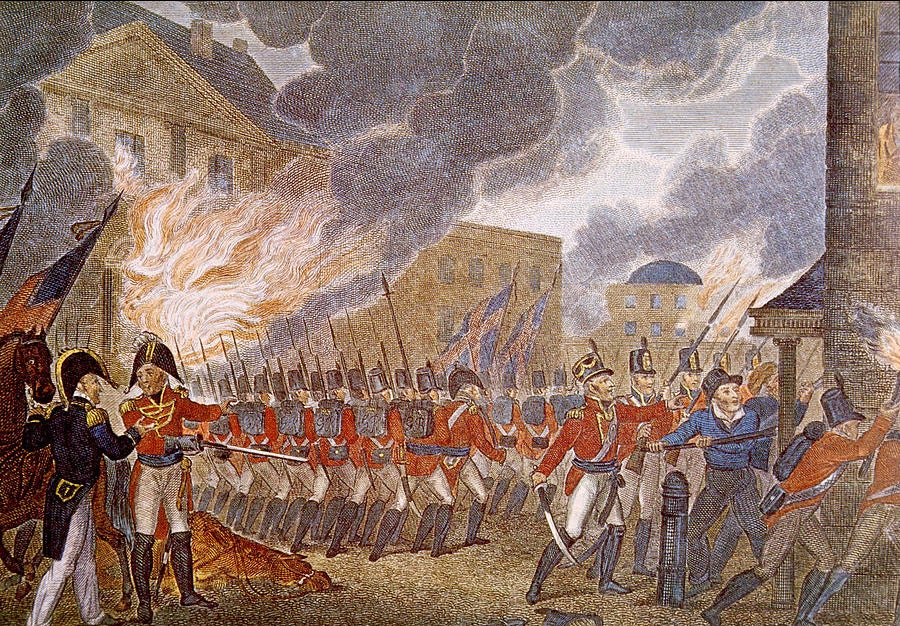
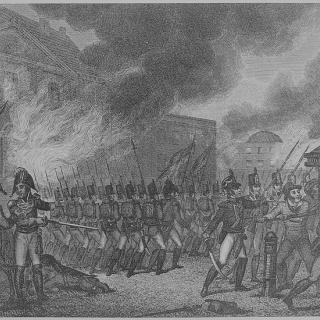
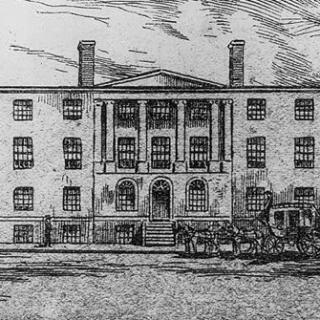
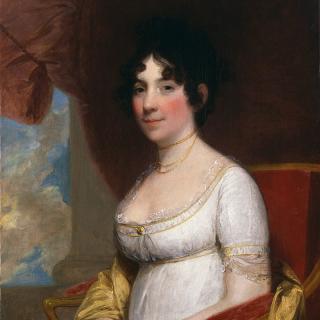
![Sketch of the mythical fuan by Pearson Scott Foresman. [Source: Wikipedia]](/sites/default/files/styles/crop_320x320/public/2023-10/Goatman_Wikipedia_Faun_2_%28PSF%29.png?h=64a074ff&itok=C9Qh-PE1)








